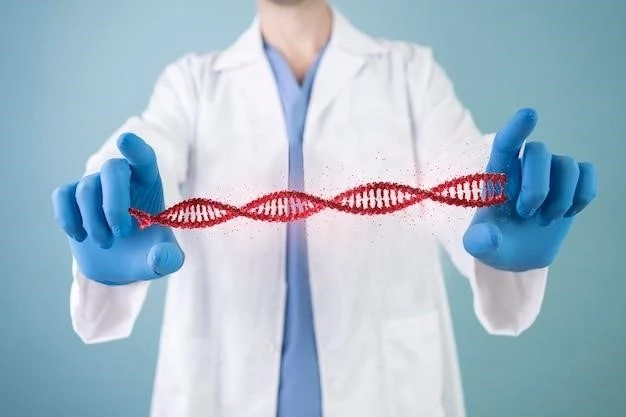Symptoms and Diagnosis of Chromosome 18q Deletion Syndrome
Understanding the Symptoms of Chromosome 18q Deletion Syndrome
When considering Chromosome 18q Deletion Syndrome, it is essential to recognize a range of symptoms. These may include developmental delays, intellectual disabilities, distinctive facial features, and potential health issues like heart defects and seizures. It’s crucial to consult with healthcare professionals for a thorough evaluation and diagnosis based on genetic testing and clinical assessments. Early detection can lead to better management and support for individuals with this condition.
Diagnosis Process for Chromosome 18q Deletion Syndrome
Diagnosing Chromosome 18q Deletion Syndrome involves genetic testing such as chromosomal microarray analysis and fluorescence in situ hybridization (FISH). A clinical geneticist or genetic counselor can help coordinate these tests. It’s important to gather medical history, conduct physical exams, and assess developmental milestones. Seeking specialized healthcare professionals familiar with rare genetic conditions can ensure an accurate diagnosis and appropriate management plan tailored to individual needs.
Management and Treatment Options for Chromosome 18 Deletion Syndrome
Medical Management Strategies
Medical management for Chromosome 18 Deletion Syndrome focuses on addressing individual symptoms and associated health conditions. This may involve regular monitoring by healthcare providers, early intervention services for developmental delays, therapies to support physical and cognitive development, medication for seizures or other medical needs, and coordinated care among a multidisciplinary team. It’s essential for families to work closely with healthcare professionals to tailor a comprehensive management plan that provides the best possible care and support for the affected individual.
Therapeutic Interventions
Therapeutic interventions for individuals with Chromosome 18 Deletion Syndrome aim to enhance their quality of life and maximize their potential. These may include speech therapy to improve communication skills, occupational therapy to develop fine motor skills, physical therapy to support mobility, behavioral interventions to address social interactions, and educational interventions tailored to individual needs. Collaborating with therapists, educators, and specialists can help create a personalized treatment plan that addresses specific challenges and fosters overall well-being.
Genetic Counseling for Families Affected by Chromosome 18q Deletion Syndrome
Importance of Genetic Counseling
Genetic counseling is crucial for families impacted by Chromosome 18q Deletion Syndrome. It provides insights into the condition٫ inheritance patterns٫ and risks. Counseling offers emotional support٫ education on available resources٫ and guidance on family planning decisions. Understanding the genetic aspects helps families make informed choices and access appropriate medical care and support services. Engaging in genetic counseling can empower families and enhance their ability to navigate the complexities of the syndrome.
Supportive Services for Families
Families affected by Chromosome 18 Deletion Syndrome can benefit from a range of supportive services. These may include access to counseling, support groups, respite care, and home healthcare assistance. Additionally, connecting with advocacy organizations and community resources can provide valuable information, emotional support, and opportunities for networking with other families facing similar experiences. By utilizing these supportive services, families can enhance their coping strategies, share knowledge, and build a strong support network to navigate the challenges associated with the syndrome.
Research Advances in Understanding Chromosome 18 Deletion Syndrome
Current Research Findings
Ongoing research into Chromosome 18 Deletion Syndrome is uncovering valuable insights into the condition’s underlying genetic mechanisms, associated health implications, and potential therapeutic avenues. Recent studies focus on understanding the impact of gene deletions on neurodevelopment, exploring targeted interventions to improve quality of life, and identifying novel approaches for symptom management. Staying informed about these cutting-edge research findings can aid healthcare providers, families, and individuals in making informed decisions and accessing the latest advancements in care and support.
Educational Strategies for Individuals with Chromosome 18q Deletion Syndrome
Individualized Education Plans (IEPs)
Individualized Education Plans (IEPs)
Individualized Education Plans (IEPs) play a critical role in supporting individuals with Chromosome 18q Deletion Syndrome. These customized plans outline specific academic goals, accommodations, and support services tailored to the unique needs of the individual. Collaborating with educators, therapists, and parents helps ensure that the educational strategies implemented address cognitive, physical, and social challenges effectively. Regular progress monitoring and modifications to the IEP as needed can optimize learning outcomes and facilitate a positive educational experience for individuals with this genetic condition.
Inclusive Learning Environments
Cultivating inclusive learning environments is vital for individuals with Chromosome 18q Deletion Syndrome. These environments promote diversity, acceptance, and tailored support to cater to each student’s needs. Providing assistive technologies, peer assistance programs, and teacher training on effective inclusion strategies can enhance the educational experience for individuals with diverse abilities. Collaboration among educators, parents, and support professionals fosters a nurturing atmosphere where every individual feels valued and can thrive academically and socially.
Support Services and Resources for Chromosome 18 Deletion Syndrome
Community Support Programs
Engaging in community support programs can offer invaluable assistance for individuals and families affected by Chromosome 18 Deletion Syndrome. These programs provide access to educational workshops, social events, therapy services, and support groups tailored to specific needs. Connecting with others facing similar challenges fosters understanding, acceptance, and a sense of belonging within the community. By participating in these support programs, individuals can access a network of resources, receive emotional support, and build meaningful relationships that contribute to their overall well-being and quality of life.
Online Resources and Helplines
Utilizing online resources and helplines can provide valuable information and support for individuals and families navigating Chromosome 18 Deletion Syndrome. Online platforms offer access to educational materials٫ research updates٫ community forums٫ and practical resources. Helplines staffed by knowledgeable professionals can address queries٫ offer guidance٫ and provide emotional support. By leveraging these digital tools٫ individuals can stay informed٫ connect with others in similar situations٫ and access assistance anytime٫ anywhere. These online resources serve as a valuable lifeline for gathering information and finding the necessary support to manage the challenges associated with the syndrome.
Neurodevelopmental Outcomes Associated with Chromosome 18q Deletion Syndrome
Understanding Neurodevelopmental Challenges
Chromosome 18q Deletion Syndrome presents neurodevelopmental challenges affecting cognition, motor skills, and social interactions. Individuals may experience delays in language development, fine and gross motor skills, and sensory processing. Cognitive impairments and behavioral issues can impact daily functioning. Therapies focusing on speech, occupational, and physical skills are crucial. Early intervention and specialized educational programs tailored to individual needs can promote skill development. Collaborating with healthcare providers and educators is essential to address these challenges effectively and enhance the individual’s quality of life.
Long-Term Prognosis and Quality of Life
Long-term prognosis for individuals with Chromosome 18q Deletion Syndrome varies based on the severity of symptoms and access to supportive resources. Regular medical monitoring٫ early intervention٫ and ongoing therapies can positively impact outcomes. Family involvement and community support are crucial for enhancing quality of life. Ensuring access to educational opportunities٫ healthcare services٫ and social interactions can improve overall well-being. Collaboration between caregivers٫ educators٫ and healthcare providers is key to maximizing potential and fostering independence. By focusing on holistic care and support٫ individuals can lead fulfilling lives despite the challenges associated with the syndrome.

Impact of Chromosome 18q Deletion Syndrome on Daily Living
Addressing Daily Challenges
Coping with the impact of Chromosome 18q Deletion Syndrome on daily life requires a supportive and structured approach. Developing routines, utilizing visual schedules, and creating safe environments can help individuals manage daily tasks effectively. Accessing assistive devices, implementing communication strategies, and practicing social skills can enhance independence and quality of life; Educating caregivers, peers, and community members about the syndrome fosters understanding and acceptance. By addressing daily challenges proactively and leveraging available resources, individuals can navigate daily activities with greater ease and confidence.
